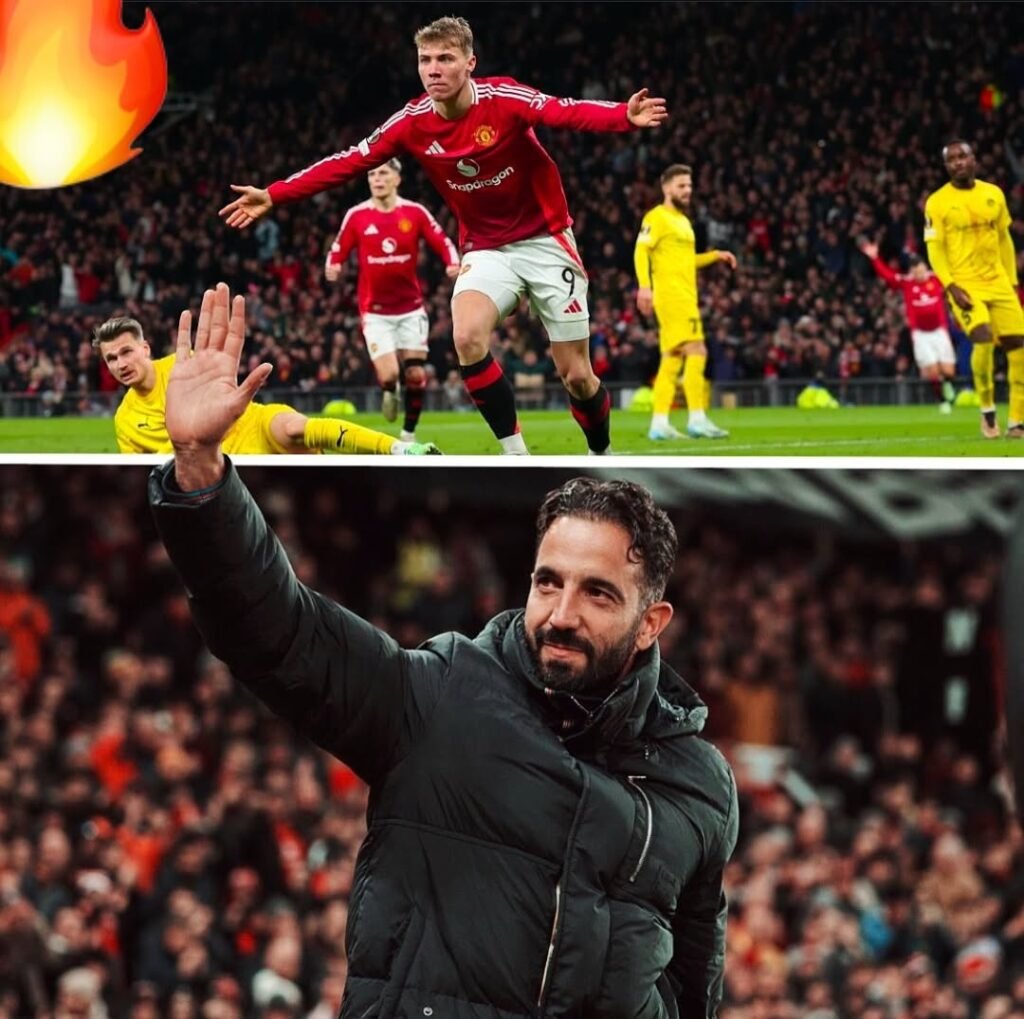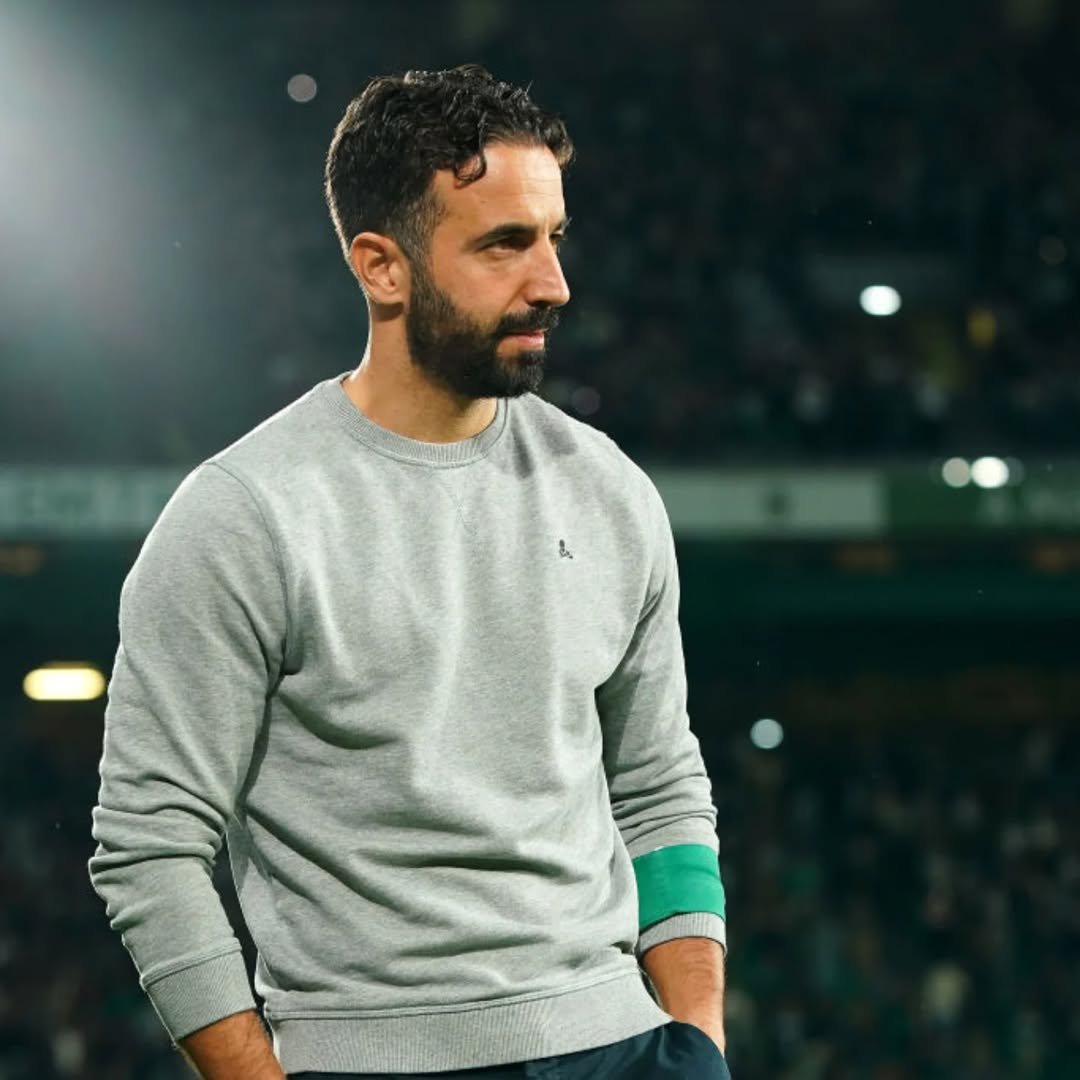Ruben Amorim has rapidly emerged as one of the most influential figures in European football, making headlines both as a player and as a manager. His journey from Lisbon’s local pitches to the managerial hot seat at Manchester United is a testament to his footballing intellect, adaptability, and leadership.
Early Life and Playing Career
Born on January 27, 1985, in Lisbon, Portugal, Ruben Filipe Marques Amorim began his professional football journey with Belenenses in 2003. His performances as a technically gifted and tactically astute midfielder soon caught the eye of Portugal’s top clubs. In 2008, he signed with Benfica, where he would enjoy the most successful period of his playing career, winning three Primeira Liga titles, one Taça de Portugal, five Taças da Liga, and a Supertaça Cândido de Oliveira.
Amorim’s versatility saw him deployed both in central midfield and occasionally at right-back. He represented Portugal at two FIFA World Cups and earned 14 caps for the national team. Despite spells on loan at Braga and a stint in Qatar with Al-Wakrah, his legacy as a player is most closely tied to his achievements at Benfica.

Transition to Management: A Meteoric Rise
After retiring in 2017, Amorim wasted no time moving into coaching. He took his first managerial role at Casa Pia in 2018, but an early dispute with the Portuguese Football Federation led to a swift exit. He then joined Braga’s reserve side, quickly impressing enough to be promoted to the senior team in December 2019. There, he won the Taça da Liga, signaling his readiness for bigger challenges.
Sporting CP: Ending a 19-Year Wait
In March 2020, Sporting CP made Amorim the third most expensive manager in history at the time, a bold move that paid immediate dividends. In his debut season, he guided Sporting to a league and cup double, ending a 19-year Primeira Liga title drought for the club. Amorim’s Sporting side was lauded for its dynamic 3-4-3 formation, tactical discipline, and the development of young talents.
He repeated his league success in the 2023–24 season, earning his second Primeira Liga Manager of the Year award and cementing his reputation as one of Europe’s brightest coaching minds.
Manchester United: The Premier League Challenge
In November 2024, Amorim accepted the challenge of managing Manchester United, one of the world’s most storied clubs. His arrival brought hope of a new era at Old Trafford, with fans eager to see if his tactical acumen could restore the club’s former glory. Early results were mixed: he made history by winning his first Manchester derby against Manchester City, but also faced setbacks, including a difficult run of form that left United mid-table in January 2025.
Legacy and Impact
Ruben Amorim’s story is one of relentless ambition and tactical innovation. Whether breaking title droughts in Portugal or taking on the immense pressure of the Premier League, Amorim has consistently demonstrated a modern approach to management—prioritizing youth development, tactical flexibility, and a fearless mentality. As he continues his journey at Manchester United, the football world watches closely, expecting his influence to shape the next generation of footballing success.
The Harsh Realities of Old Trafford
Amorim took over Manchester United in November 2024, inheriting a squad low on confidence and form after the dismissal of Erik ten Hag. Despite initial optimism, results quickly exposed the scale of the challenge. United endured one of their worst league campaigns in decades, languishing as low as 14th and 16th in the Premier League at various points, with the threat of relegation looming—a scenario almost unthinkable for a club of United’s stature.
The team’s struggles were compounded by a lack of goals, with United on track to break their record for the fewest goals scored in a Premier League season. The squad, still adapting to Amorim’s preferred 3-4-3 system, often looked uncomfortable and inconsistent, with key players failing to adjust and several high-profile names facing uncertain futures.
Honest Assessments and Clear Demands
Throughout the season, Amorim was candid about the team’s shortcomings. After a particularly poor run, he famously described United as “probably the worst team in the history” of the club following a home defeat to Brighton. He repeatedly called for a cultural overhaul, emphasizing the need for bravery and decisiveness in the transfer market and warning that if he couldn’t change the club’s culture, perhaps he was not the right man for the job.Amorim’s transparency extended to the fans, to whom he sent messages of hope and realism. Despite the dire league position and a string of losses, he maintained, “I know it will take a lot of hard work from everyone to get there, but I am very excited about where we can go together in 2025”.
Tactical Stubbornness or Visionary Persistence?
One of the most debated aspects of Amorim’s tenure has been his unwavering commitment to the 3-4-3 formation. Critics, including pundits like Paul Scholes and Paul Merson, have questioned whether his tactical rigidity has contributed to United’s ongoing struggles, especially as the squad was not built for such a system. Yet, Amorim remained steadfast, insisting that the system would bear fruit with the right personnel and time.
Planning for a Rebuild
As the season drew to a close, Amorim’s authority and vision for the club became clearer. He has prioritized adding pace, power, and athleticism to the squad, particularly in midfield and attack, recognizing that United have been physically outmatched by Premier League rivals. Several big names are expected to depart, and a significant overhaul is on the cards, with Amorim set to be at the center of the club’s summer rebuild.
Conclusion:
Ruben Amorim’s first season at Manchester United was extremely challenging, marked by poor league results and a failure to qualify for European competition, leading to widespread criticism and the club’s worst-ever Premier League finish. Despite these setbacks, Amorim remains optimistic about the future, determined to rebuild the squad and implement his tactical vision, with the club’s leadership still backing him for the next season. His resilience and commitment to his philosophy will be crucial as he seeks to turn things around at Old Trafford.
To read more, click here
